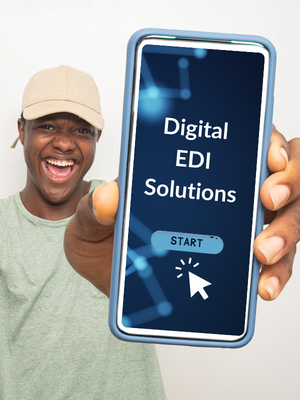You can either choose diversity or you can choose to be ‘super-duper’. If a diverse workforce, student population or whatever, emerges organically through the pursuit of excellence, that is one thing. But to privilege diversity above excellence is different. And it is likely to undermine the very objectives that inspired it.
If Scalia can be so wrong about Diversity, how can we blame other smart people who do not fully grasp the fact that is not an either-or choice between excellence and mediocrity?
So what can we do when we have powerful, smart people with seemingly credible arguments saying that EDI is not worth pursuing? I offer five responses for your consideration:
1. If it ain’t broke… Things might very well be fine as they are. But what about tomorrow? Is the way you’re doing business today going to serve you just as well tomorrow? Look around! Everything is changing – from societal views to how people do business. Diversity is everywhere, from the biggest, most successful companies to those just getting started. What do they all know that you don’t? If you’re not considering EDI as part of your business model, then the answer to that question is, ‘plenty’.
2. There aren’t enough diverse candidates who are good enough… The people who are currently doing a fantastic job in your organisation are excellent. But what one potential common weakness might they have? Just as the CIA (who hired only the Ivy League cream of the crop) failed to see the threat posed by Bin Laden, so a group of homogenous employees can be blindsided to the risks and opportunities that exist in your business. And you’ll never know until it’s too late, either because a threat has materialised or an opportunity has passed you by. A group of diverse individuals – whatever you might assume about their intelligence or experience – will be better equipped to minimise blind spots and maximise opportunities.
3. How do we attract diverse candidates? Your business might be particularly attractive to a specific type of person. For instance, engineering, video games development or finance. But is it really true that people from underrepresented backgrounds don’t see themselves in those roles or don’t want to work in your industry? Consider the story of blind auditions in orchestras. Were certain types of musicians not attracted to the repertoire of music certain orchestras played or did bias hold the door firmly closed to them? In my experience, companies who open their doors to underrepresented candidates are astounded by how many people DO want to work in their sector and how many of them do well. So my question to you is, are you sure you’re unable to attract them?
4. The end of promotions for white men? Many are concerned that if we are to progress people from underrepresented backgrounds it means that those from the dominant group will no longer be able to progress. In response to this, I invite you to look at the evidence. Are no members from the dominant group (mostly white educated men) being promoted? Have the opportunities for promotion been ‘taken over’ by employees from underrepresented groups? I expect that if you look at promotion records for the past year, you’ll find that only a few people from underrepresented backgrounds have in fact been promoted.
Conversations on this topic are not about lowering standards or promoting people who are not deserving, but about the definition of who is deserving and why. Are you sure you’re promoting candidates who can perform well in the required job, or those who you think will do well? Or those with whom you feel more comfortable? Or those who seem a better fit? It’s quite difficult to remove the natural biases that creep into processes like promotions. For this reason, it’s unlikely that promotions are going to change radically, if at all, despite best efforts. And if/when they do, it will be in favour of everyone who has the potential to do well, not just those who are currently underrepresented.
5. All this is just a trend that will soon pass. If anyone suggests that EDI is merely a trend, I respectfully invite them to look around. Despite some political efforts to the contrary (for instance in Afghanistan, or Iran, or even the US), companies everywhere are getting behind EDI – both in their marketing efforts and their working culture. The business world understands that we have passed the point of no return in favour of EDI. Those who are trying to halt the momentum will soon be shown to be like King Canute, unable to hold back the tide. The future could paint a worrying picture for those organisations that do nothing. The growing trend now is in fact the demise of companies with all white, all male boards and the successes of companies that embrace diverse talent, markets and thinking. Ask yourself: which is the trend you’d bet your own money on?
When it comes to nay-sayers, there may be very little we can say to them effectively, because EDI seems so obvious to us. In addition, those who ‘don’t get it’ are in the minority and efforts to embrace EDI should be spent elsewhere, e.g., on training, awareness raising and internal communication campaigns, not on persuading those individuals who may never come along. But if the opportunity to challenge a nay-sayer arises, I have hopefully offered food for thought in how to address some of the common misconceptions held by those who oppose your EDI transition.


